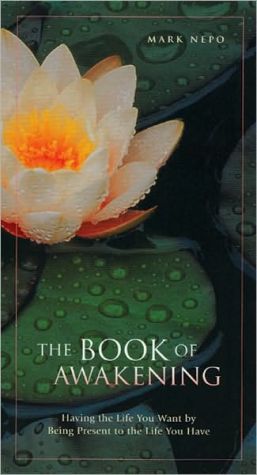The Deepening Darkness: Loss, Patriarchy, and Democracy's Future
Why is America again unjustly at war? Why is its politics distorted by wedge issues like abortion and gay marriage? Why is anti-Semitism still so powerfully resurgent? Such contradictions within democracies arise from a patriarchal psychology still alive in our personal and political lives in tension with the equal voice that is the basis of democracy. The book joins a psychological approach with a political-theoretical one that traces both this psychology (based on loss in intimate life) and...
Search in google:
This analysis of love and violence under patriarchy illuminates the most impending threats to democracy's future. Publishers Weekly Gilligan and Richards leave few stones unturned in this exploration of patriarchy throughout time, beginning with ancient Rome, focusing on its diametric relationship with democracy: "we lack a critical public understanding of this tension, in part because... Roman patriarchy has been absorbed into our religion and political culture." The authors examine patriarchy in many literary sources, from Oedipus Rex and the Bible to Hemingway, Joyce and Freud. Among other themes, they find repeatedly that "exposing the psychology underlying patriarchy touches a nerve so sensitive that it becomes inflammatory," for reasons that include "the dynamics of shame and violence... how closely questions of honor are aligned with questions of gender," and "how intricately gender is woven into the body, into language, and into identity and culture." Authors and gender scholars Gilligan (Kyra, In a Different Voice) and Richards (The Case for Gay Rights, Disarming Manhood) make it clear that patriarchy is omnipresent in our society; discussion of matriarchal societies and literature would have made an enlightening counterpoint. This exhaustive study will be of particular interest to gender studies professionals and students. Copyright © Reed Business Information, a division of Reed Elsevier Inc. All rights reserved.
1 Why Rome? : why now? 92 Roman patriarchy and violence 223 Vergil on the darkness visible 534 Apuleius on conversion 825 Augustine on conversion 1026 Resistance : religion 1217 Resistance : psychology 1598 Resistance : the artists 1989 Resistance : politics 22510 The contemporary scene 249Conclusion 264Notes 269Bibliography 303Index 325
\ From the Publisher“The Deepening Darkness leads to the light of understanding that there can be no true democracy in public life until we have democratic families and connections in private life. Gilligan and Richards have proven this link. Now it's up to us to live it.” \ Gloria Steinem \ “This is a book with a grand thesis, and it should probably be thought of in the tradition of Hannah Arendt on evil, or Bruno Bettelheim. It argues that patriarchy remains the root of the evils of racism, sexism and much violence in contemporary society. More precisely, the book claims that patriarchy calls for and legitimates the traumatic disruption of intimate relationships, and the effect of such trauma in the human psyche is precisely to suppress personal voice and relationships and to identify with the patriarchal voice that imposed the disruption.”\ Simon Goldhill, Professor of Classics, Kings College, University of Cambridge\ “This historically probing, gracefully literary, and deliciously detailed book brilliantly illuminates the mysterious psychological roots of political domination and defiance.”\ Stephen Holmes, Walter E. Meyer Professor of Law, NYU School of Law\ “Far-ranging in its scope, compelling in its exposition and argument, informed by an inclusive, humane vision and imagination, this ambitious, richly perceptive synoptic study is firmly anchored in the insights and findings of recent scholarship. It brilliantly connects the ancient Roman world with our own. It illuminates as it forges other, riveting connections among a dazzling array of ostensibly disparate topics concerning contemporary Americans, and accords center stage to the role played by a series of canonized western literary masterpieces in making and sustaining these connections.”\ Judith P. Hallett, Professor, Department of Classics, University of Maryland\ “Carol Gilligan and David Richards have written a bold book that draws as palpably on their respective backgrounds in psychology and law as it does on their shared passion for literature. Using an immensely rich set of materials, they explore how patriarchy operates at the atomic level of human consciousness, and how, in doing so, it can destroy even its ostensible beneficiaries. These scholars see the world differently from you, and the book they have written may trigger a welcome conversion.”\ Kenji Yoshino, Chief Justice Earl Warren Professor of Constitutional Law, NYU School of Law\ “The Deepening Darkness is that rare thing – a cultural study that is not only a delight to read, but one with important practical implications. Gilligan and Richards expose the fundamental organizing role of patriarchy in western consciousness and show that we have been wedded to a false story about human nature, resistance to which is understood as pathology or sin. They provide fascinating descriptions of the error being transmitted through social institutions, and point out its malignant impact on men and women alike. For example, they trace clearly how even psychoanalysis, which began by liberating the individual, became oppressive due to Freud's inability to escape the patriarchical demands embedded in his own psychology.”\ Owen Renik, former Editor-in-Chief of The Psychoanalytic Quarterly\ \ \ \ \ \ Publishers WeeklyGilligan and Richards leave few stones unturned in this exploration of patriarchy throughout time, beginning with ancient Rome, focusing on its diametric relationship with democracy: "we lack a critical public understanding of this tension, in part because... Roman patriarchy has been absorbed into our religion and political culture." The authors examine patriarchy in many literary sources, from Oedipus Rex and the Bible to Hemingway, Joyce and Freud. Among other themes, they find repeatedly that "exposing the psychology underlying patriarchy touches a nerve so sensitive that it becomes inflammatory," for reasons that include "the dynamics of shame and violence... how closely questions of honor are aligned with questions of gender," and "how intricately gender is woven into the body, into language, and into identity and culture." Authors and gender scholars Gilligan (Kyra, In a Different Voice) and Richards (The Case for Gay Rights, Disarming Manhood) make it clear that patriarchy is omnipresent in our society; discussion of matriarchal societies and literature would have made an enlightening counterpoint. This exhaustive study will be of particular interest to gender studies professionals and students. \ Copyright © Reed Business Information, a division of Reed Elsevier Inc. All rights reserved.\ \








